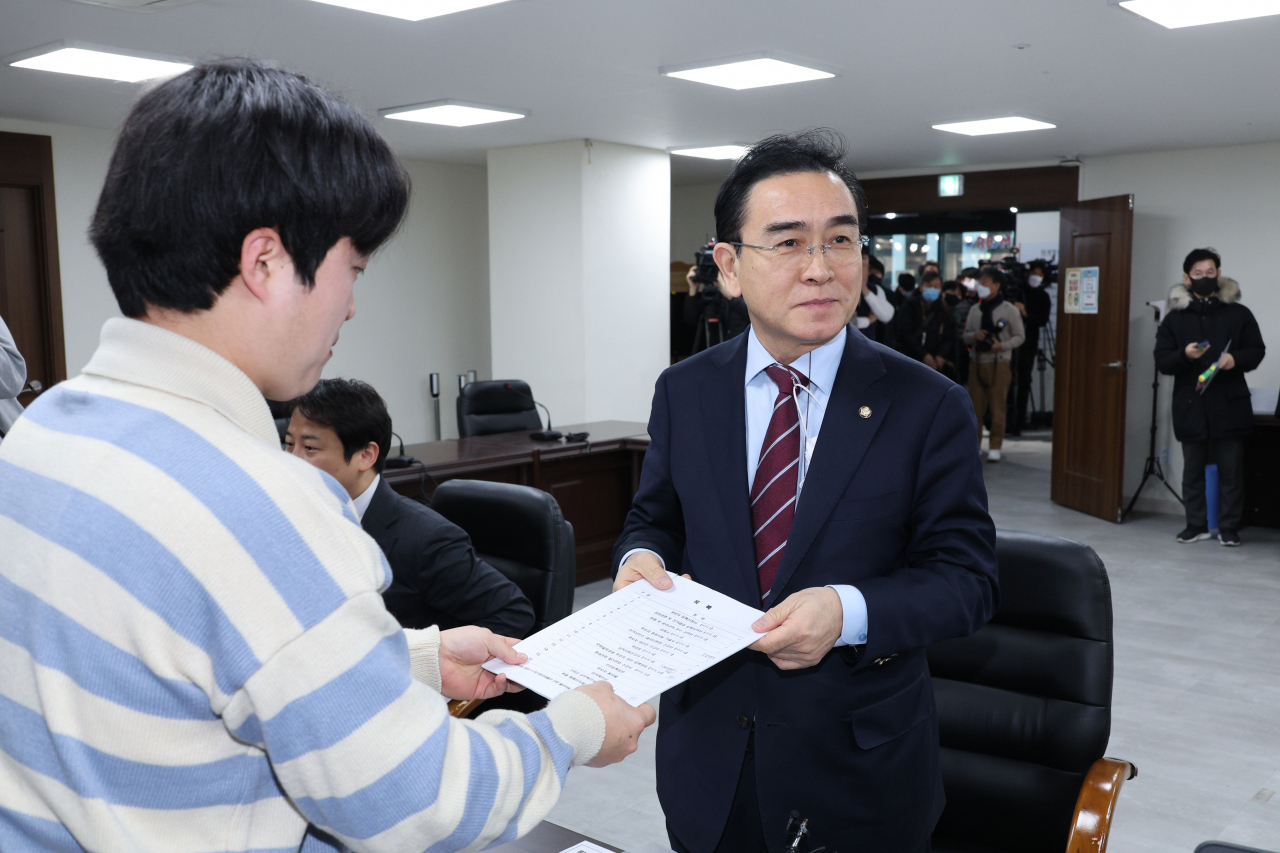
North Korea is already prepared to conduct another nuclear test, but is biding its time to gain leverage in negotiations with China and other powers, according to Rep. Tae Yong-ho, a former North Korean diplomat who was elected into the South Korean parliament after defecting in 2016.
At a press conference on Thursday, Tae said that whether North Korea decides to test its nuclear weapons for the seventh time was “between Kim Jong-un and Xi Jinping.”
“The question of the next nuclear test is a useful card for Kim Jong-un to play in leveraging economic assistance from China. The influence that China has in deterring or dissuading North Korea from resuming nuclear tests in turn allows China to have a bigger say in its relations with South Korea,” he said.
He said he believes the North Korean leader would “not want to give up the effective bargaining chip that is the seventh nuclear test, unless he is a fool.”
“If Kim Jong-un wants something, he can have some vehicles drive in and out of the nuclear test site just for show. He will want to toy with that possibility to keep South Korea and the US on their toes,” he said.
Tae said that in the long run, South Korea may need to be armed with nuclear weapons of its own “for deterrence in the region to continue to work.”
“NATO-style nuclear sharing and extended deterrence will begin to lose credibility once North Korea gains the capability to strike the west coast of the US. When that point comes, the US may be forced to rethink its policy of an unarmed South Korea,” he said.
The balance of security in Northeast Asia was “tipped against” the US and its allies, he said, explaining that a nuclear military alliance is being formed between China, Russia and North Korea while South Korea and Japan rely on the US for extended nuclear deterrence.
He said the US may face the threat of two concurrent wars in the Northeast Asian region.
“Last year, the Chinese Communist Party enshrined opposition to Taiwan independence into its constitution. If China decides to unify with Taiwan through force, and North Korea launches direct provocations against South Korea, the US could be put in a position of having to manage two wars in the region at once.”
Under Kim Jong-un, espionage against South Korea was ramped up, Tae said.
He said North Korea now has at least four departments dedicated to espionage across the Reconnaissance General Bureau, the unification front of the Workers’ Party, the Ministry of State Security and the Military Security Command of the People’s Army. There used to be just two.
“By contrast, South Korea has weakened its ability to detect and deter North Korean espionage under the Moon Jae-in administration, barring the top spy agency -- the National Intelligence Service -- from operating counter-espionage missions,” he said.
He said that spying activities by North Korea were “unlike those of spies of other normal countries.”
“Their goal isn’t just to collect intelligence. They work to propagate pro-North Korean regime ideology and influence South Korean domestic politics,” he said.
He said that recent accusations against some members of South Korea’s umbrella labor organization, the Korean Confederation of Trade Unions, of working with North Korean authorities might be a “telling example.”
The labor organization has openly rallied against US-South Korea military exercises and called for the exit of US forces from South Korea.
“Over the five years of the last Moon administration, joint military drills were scaled down. The result of that was a fumbling response on our part to the North Korean drone incursion last December,” he said.
On Thursday, Tae formally registered his candidacy for membership in the ruling People Power Party’s supreme council. He is competing against seven others for five seats on the council, the party’s top governing body, at the party convention slated for March 8. If elected, he would become the first North Korean defector to hold a leadership position in a South Korean political party.




![[KH Explains] How should Korea adjust its trade defenses against Chinese EVs?](http://res.heraldm.com/phpwas/restmb_idxmake.php?idx=645&simg=/content/image/2024/04/15/20240415050562_0.jpg&u=20240415144419)
